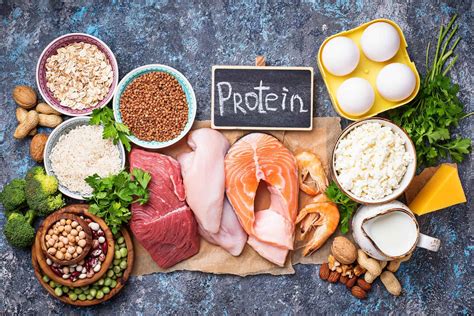What’s the optimal daily protein intake for peak muscle growth and recovery in men?

Unlocking Peak Muscle Growth and Recovery Through Protein
For men dedicated to building muscle, enhancing strength, and optimizing recovery, protein isn’t just a nutrient; it’s the cornerstone of their dietary strategy. The question isn’t whether protein is important, but rather, what constitutes the ‘optimal’ daily intake to truly maximize these physiological processes. Navigating the myriad of recommendations can be challenging, but scientific consensus offers clear guidelines for those serious about their gains.

The Indispensable Role of Protein in Muscle Physiology
Protein is composed of amino acids, the building blocks of muscle tissue. When we engage in resistance training, muscle fibers experience microscopic damage. Dietary protein provides the necessary amino acids to repair these damaged fibers and synthesize new ones, leading to hypertrophy (muscle growth). Beyond growth, protein also plays a vital role in hormone production, enzyme function, and immune health, all of which indirectly support recovery and performance.
Specifically, essential amino acids (EAAs), particularly the branched-chain amino acids (BCAAs) like leucine, valine, and isoleucine, are critical for stimulating muscle protein synthesis (MPS). Ensuring a sufficient supply of these amino acids is paramount for anyone looking to make significant progress in their fitness journey.
General Recommendations for Active Men
While individual needs can vary, robust scientific evidence points to a general range for active men aiming for muscle growth and recovery. The most commonly cited and effective guideline is an intake of 1.6 to 2.2 grams of protein per kilogram of body weight per day (g/kg/day). For a man weighing 80 kg (approximately 176 lbs), this translates to roughly 128 to 176 grams of protein daily.
Some research suggests that intakes slightly higher, up to 2.5 g/kg/day, may offer additional benefits during periods of calorie restriction (e.g., cutting phases) to preserve lean muscle mass. However, exceeding 2.2 g/kg/day generally yields diminishing returns for muscle growth in a caloric surplus, though it remains safe for most healthy individuals.

Key Factors Influencing Optimal Intake
Several variables can fine-tune your specific protein requirements:
- Training Intensity and Volume: The more demanding your workouts, the greater the muscle breakdown, and thus, the higher your protein needs for repair and growth.
- Body Composition Goals: During a muscle-building phase (bulking), sufficient protein supports new tissue synthesis. During a fat-loss phase (cutting), higher protein intake is crucial for preserving muscle while in a caloric deficit.
- Age: As men age, they may experience anabolic resistance, meaning their muscles become less responsive to protein. Older adults might benefit from slightly higher protein intakes (e.g., 1.8-2.2 g/kg/day or more) to counteract sarcopenia (age-related muscle loss).
- Individual Metabolism and Response: Genetic factors and individual metabolic rates can influence how efficiently your body utilizes protein.
Timing and Distribution: Maximizing Anabolic Windows
While total daily protein intake is the most critical factor, how you distribute that protein throughout the day can also play a role in optimizing MPS. It’s recommended to spread protein intake across 3-5 meals, aiming for 20-40 grams per meal, depending on total daily needs and body weight.
Consuming protein pre- or post-workout (within a few hours) can be beneficial, but the “anabolic window” is not as narrow as once believed. What matters most is consistent protein intake throughout the day to keep amino acid levels elevated and support continuous MPS. A serving of slow-digesting protein, like casein, before bed can also provide a sustained release of amino acids overnight.

Quality Matters: Choosing Your Protein Sources
Not all protein sources are created equal. Prioritize ‘complete’ proteins that contain all nine essential amino acids. Excellent sources include:
- Animal Proteins: Lean meats (chicken breast, turkey, lean beef), fish (salmon, tuna), eggs, dairy (milk, Greek yogurt, cottage cheese). These are generally considered high-quality and highly bioavailable.
- Plant-Based Proteins: Soy, quinoa, buckwheat, and combinations of plant proteins (e.g., rice and beans) can provide a complete amino acid profile. Plant-based protein powders (pea, rice, soy) are also excellent options for vegetarians and vegans.

Practical Tips for Meeting Your Protein Needs
- Plan Your Meals: Incorporate a protein source into every meal and snack.
- Lean Protein Choices: Opt for lean cuts of meat, poultry, and fish.
- Dairy Power: Utilize Greek yogurt, cottage cheese, and milk for easy protein boosts.
- Smart Snacking: Hard-boiled eggs, nuts (in moderation), and protein bars can be convenient.
- Supplements: Whey protein (fast-digesting), casein protein (slow-digesting), and plant-based protein powders are effective and convenient ways to supplement your intake, especially around workouts or when whole food options are unavailable.
- Track Your Intake: Use a food tracking app for a few days to understand your current protein consumption and identify areas for improvement.

Conclusion
For men striving for peak muscle growth and optimal recovery, targeting a daily protein intake of 1.6 to 2.2 g/kg of body weight, spread consistently throughout the day, serves as an excellent evidence-based guideline. Factor in your training intensity, body composition goals, and age, and prioritize high-quality protein sources. By strategically integrating protein into your diet, you provide your body with the fundamental building blocks it needs to repair, grow, and perform at its best, transforming your efforts in the gym into tangible results.









